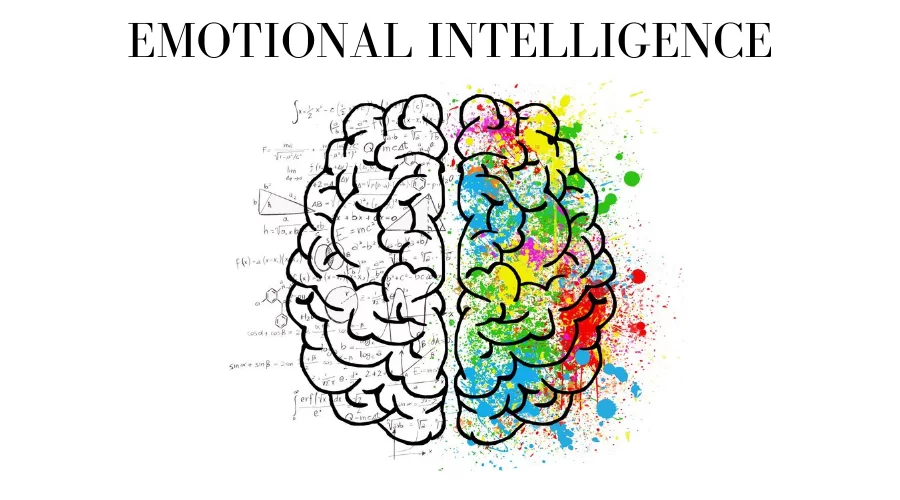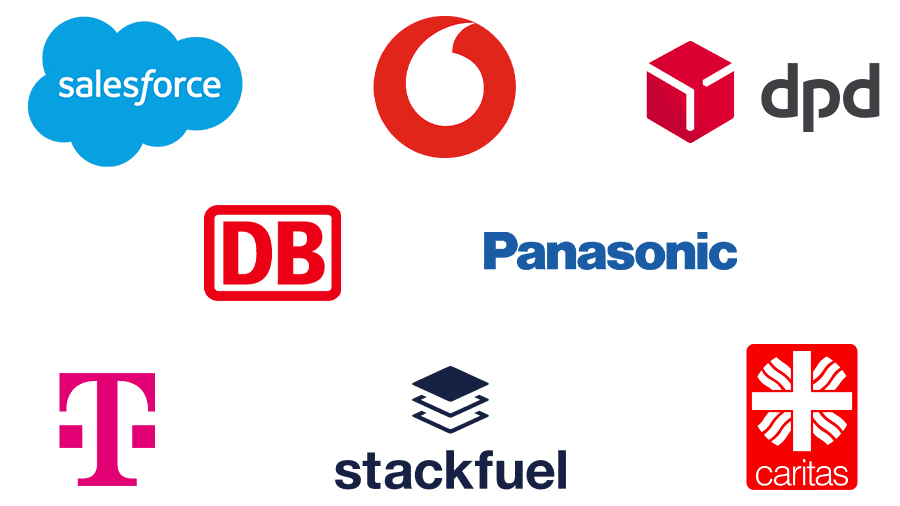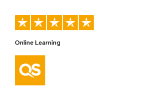
Emotional Intelligence
The Emotional Intelligence (EI) course aims to help individuals develop their understanding and management of emotions, both personally and in interactions with others. Emotional intelligence is a critical skill in various aspects of life, including leadership, teamwork, and personal development. This course typically covers topics such as self-awareness, self-regulation, empathy, and relationship management.
Overview

Emotional Intelligence
Course Learning Objectives
Course Overview:
The Emotional Intelligence (EI) course is designed to help individuals develop the skills and competencies necessary to recognize and manage their own emotions, as well as the emotions of others. The course aims to equip participants with the knowledge, skills, and strategies to effectively navigate complex social situations, build strong relationships, and achieve personal and professional success.
Competencies:
The course focuses on the following emotional intelligence competencies:
Self-Awareness: Recognizing one's emotions and their impact on behavior
Self-Regulation: Managing one's emotions to achieve goals
Motivation: Using emotions to drive motivation and achievement
Empathy: Understanding and connecting with the emotions of others
Social Skill: Using emotional intelligence to build strong relationships and communicate effectively
Learning Objectives (LOs):
By the end of this course, participants will be able to:
Identify and understand their own emotional triggers and biases
Develop strategies for managing stress, anxiety, and other negative emotions
Use emotional intelligence to motivate themselves and others
Build stronger relationships by empathizing with others' emotions
Communicate effectively in personal and professional settings
Specific Learning Outcomes (SLOs):
Upon completing this course, participants will be able to:
Recognize and label their emotions in various situations (SLO 1)
Apply effective self-regulation strategies to manage stress and anxiety (SLO 2)
Use emotional intelligence to set and achieve goals (SLO 3)
Demonstrate empathy and understanding towards others' emotions (SLO 4)
Communicate effectively in group settings, taking into account others' emotional cues (SLO 5)
Course Structure:
The course will consist of interactive lectures, group discussions, case studies, role-playing exercises, and self-assessment activities. Participants will have opportunities to reflect on their own emotional intelligence development throughout the course.
This is just a sample outline, but I hope it gives you an idea of what an Emotional Intelligence course might look like!

Benefits
With AI, the world is your oyster! It is an emerging field, rapidly growing, ever evolving and watched with a keen eye by industries and markets globally. There are many benefits to an education in AI:
In demand Career
With a Bachelor in artificial intelligence you are equipped with in-demand skills in the rapidly growing field of AI. Knowledge of developing AI systems, data analysis and AI techniques makes you valuable across industries, right from healthcare, finance, tech and more. This degree prepares you for career that has multiple options for diversification. AI professionals include AI engineers, data scientists, machine learning specialists, AI consultants, researchers and more. AI is transformative technology that is revolutionising the world. With an education background in AI, you are set up in an in-demand career field with an exciting future ahead!
Innovation and advancement
Applied AI is all about finding solutions and using AI systems to make life simpler. Applied AI draws on its solid foundation in Computer Science to analyse and provide solutions for real world challenges. You are prepared to address complex problems and contribute meaningfully in domains like healthcare diagnostics, fraud detection, autonomous vehicles, personalised recommendations and more. Being able to apply AI techniques for solving tasks makes for an extremely rewarding and impactful job role!
Solving real world problems
AI aims to constantly bridge the gap between natural intelligence and machine learning - it is a field of cutting edge research, innovation and advancing technology. This makes it ever evolving, with new algorithms, models and techniques being developed. By studying AI at an undergraduate level, you gain a strong foundation in AI fundamentals that help you better understand the latest advancements. You step into a career that empowers you to push the boundaries of AI, contribute to research and development and drive innovation in the field.
100% International
Study at your own pace from anywhere in the world
Recommended by 96% of our graduates
According to our latest alumni survey
50,000+ students
enrolled in Germany’s largest university
Study contents
Contents
What is Emotional Intelligence?
Definition of emotional intelligence
History and development of emotional intelligence
Components of emotional intelligence
Components of Emotional Intelligence
Self-awareness
Self-regulation
Motivation
Empathy
Social skills
Self-Awareness
Recognizing and understanding your emotions
Identifying patterns and triggers of emotions
Developing emotional resilience
Building self-esteem and confidence
Self-Regulation
Managing your emotions effectively
Regulating stress and anxiety
Developing emotional control and impulse control
Improving decision-making and problem-solving skills
Motivation
Understanding your values and goals
Identifying sources of motivation
Developing a growth mindset
Cultivating a sense of purpose and direction
Empathy
Understanding others' emotions and perspectives
Developing active listening skills
Practicing compassion and understanding towards others
Building strong relationships through empathy
Social Skills
Building effective communication skills
Developing conflict resolution skills
Understanding social cues and norms
Practicing effective teamwork and collaboration
Emotional Intelligence in the Workplace
The benefits of emotional intelligence in the workplace
Developing emotional intelligence in the workplace
Emotional intelligence in leadership and management
Emotional Intelligence in Relationships
Building strong relationships through emotional intelligence
Communicating effectively in personal and professional relationships
Managing conflict and resolving issues in relationships
Practical Strategies for Developing Emotional Intelligence
Mindfulness and meditation practices for emotional regulation
Journaling and reflection for self-awareness
Active listening and communication skills for empathy and social skills
Admission
Admission Criteria
Academic Qualifications:
Bachelor's degree: A bachelor's degree in a relevant field such as psychology, education, sociology, or human resources is often required.
Master's degree: A master's degree in a related field may be preferred or required for advanced courses or specializations.
Relevant coursework: Completion of courses in psychology, sociology, education, or human resources may be necessary to demonstrate a foundation in understanding human behavior and emotional intelligence.
Personal Qualities:
Strong communication skills: The ability to effectively communicate with others is crucial for emotional intelligence, so admission committees look for candidates with excellent communication skills.
Empathy and compassion: Emotional intelligence requires understanding and empathy towards others, so candidates who demonstrate these qualities are more likely to be accepted.
Self-awareness: The ability to recognize and understand one's own emotions and strengths is essential for emotional intelligence. Admission committees look for candidates who demonstrate self-awareness.
Leadership potential: Many EI courses focus on leadership development, so admission committees may look for candidates who have demonstrated leadership skills or potential.
Motivation and commitment: Admission committees want to ensure that candidates are committed to developing their emotional intelligence and willing to put in the effort required.
Other Requirements:
Prerequisite courses: Some programs may require prerequisite courses in statistics, research methods, or organizational behavior.
GPA requirement: A minimum GPA requirement may be set by the institution or program.
Letters of recommendation: Candidates may need to provide letters of recommendation from professors, supervisors, or mentors who can speak to their skills and potential.
Personal statement or essay: A personal statement or essay may be required to explain why the candidate is interested in the course or program and how they plan to apply their learning.
Careers
Start Your Career Now
Counselor or Therapist: A high level of EI is essential in this profession, as counselors and therapists need to understand and empathize with their clients' emotions to provide effective support.
Sales Representative: Salespeople with high EI can better understand customer needs, build strong relationships, and navigate difficult conversations to close deals.
Human Resources Manager: HR professionals need EI to effectively manage employee conflicts, resolve disputes, and develop strong working relationships with colleagues.
Teacher or Educator: Teachers with high EI can create a positive classroom environment, understand students' emotional needs, and provide individualized support.
Manager or Leader: Emotional intelligence helps leaders to motivate, inspire, and empower their teams, making them more effective managers.
Mental Health Professional: Mental health professionals, such as psychologists, social workers, and counselors, rely heavily on their emotional intelligence to understand and support individuals with mental health issues.
Conflict Resolution Specialist: Individuals with high EI are skilled at resolving conflicts and negotiating resolutions that benefit all parties involved.
Coaching or Mentoring: Coaches and mentors use their EI to build strong relationships with their clients or mentees, providing guidance and support for personal and professional growth.
Public Relations Specialist: PR professionals need EI to build strong relationships with clients, understand the emotions of the public, and navigate crisis communications.
Healthcare Professional: Healthcare providers, such as doctors, nurses, and caregivers, rely on EI to provide compassionate care, empathize with patients, and manage stressful situations.
Social Worker: Social workers use their EI to understand the emotional needs of clients, build trust, and develop effective intervention strategies.
Event Planner: Event planners need EI to understand the emotions of attendees, manage stress during event planning, and ensure a successful outcome.
Customer Service Representative: Customer service representatives with high EI can resolve customer complaints effectively, empathize with customers' emotions, and provide personalized support.
Non-Profit Professional: Non-profit professionals often work in emotionally demanding environments; having high EI helps them build strong relationships with donors, volunteers, and clients.
Researcher: Researchers in various fields (e.g., social sciences, education) use EI to understand the emotional aspects of human behavior and develop effective research methods.
Business Owner or Entrepreneur: Entrepreneurs with high EI can better understand their employees' needs, manage stress and conflict effectively, and make informed decisions.
Mediator: Mediators use their EI to facilitate communication between parties in conflict, building trust and creating a safe environment for negotiation.
Public Policy Analyst: Public policy analysts need EI to understand the emotional impact of policies on individuals and communities, developing more effective solutions.
Community Outreach Worker: Community outreach workers use their EI to build trust with community members, understand their emotional needs, and develop effective outreach strategies.
Corporate Trainer: Corporate trainers with high EI can design engaging training programs that cater to employees' emotional needs, improving learning outcomes.
Student reviews
Coming Soon.
Tuition fees
All our study programmes include the following benefits
- Teaching and study material
- Marking of your end-of-module exams
- Monthly live and recorded tutorials
- Use of the online campus
- Individual study coaching
- Online exams
- Career coaching
- Learn English for free
Our global recognition

IU is recognised by WES Canada and U.S., which means your degree can be converted to points in the local system for purposes of immigration, work, or studies.

As the first EU institution in UNESCO's Global Education Coalition, IU is committed to ensuring accessible quality education to students in crisis worldwide through free online micro-credentials.
Our company partners

For over 20 years, IU has established partnerships with leading global companies. This offers you the chance to gain firsthand experience through internships and projects and allow us to adapt our learning content to the ever-evolving needs of the labour market. You'll benefit from an education designed to bridge the gap between theory and real-world practice, ensuring your readiness for your future career.
Recognition
Recognition of previous achievements
Have you already completed a training course, studied at a university or gained work experience? Have you completed a course or a learning path through EPIBM LinkedIn Learning, and earned a certificate? Then you have the opportunity to get your previous achievements recognised, and complete your studies at EPIBM sooner.

Save time:
Skip individual modules or whole semesters!
Even before you apply for a study programme, we’ll gladly check whether we can take your previous achievements into account: 100% online, no strings attached. Simply fill in our recognition application form, which you can find under the content section of each study programme's webpage, and upload it via our upload section. You can also e-mail it to us, or send it via post.
Send an email to [email protected] to find out which previous achievements you can get recognised. You can get your previous achievements recognised during your studies.
Recognition files
Autonomous vehicles developer
With AI, the world is your oyster! It is an emerging field, rapidly growing, ever evolving and watched with a keen eye by industries and markets globally. There are many benefits to an education in AI:
That’s why after graduating, you’ll be able to apply your professional skills and knowledge, and work for development teams at any sector you find appealing.


Augmented reality (AR/VR) developer
Virtual (or augmented) reality isn’t all just fun and games, as great and enjoyable as that aspect is. It can also be used for groundbreaking social and psychological research, defensive purposes and therapy.
With an Applied Artificial Intelligence degree from IU University of Applied Sciences, you can take part in this vital field of technological development, and work on a wide variety of interesting projects.
Change what the world thinks about the possibilities that AI offers, and make a real difference in people’s lives, while enjoying every step of the process.
F.A.Q
Frequently Asked Questions
You might also be interested in these study programmes
Accredited and certified













